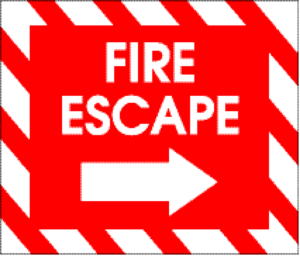“The safety of the people shall be the highest law.”
Marcus Tullius Cicero
It is your responsibility to do everything in your control to keep everyone safe at your event.
YOUR DUE DILIGENCE
You have a duty of care and need to be aware of the relevant laws to know what you are responsible for. Some of the aspects you have to take care of are as follows:
Security Requirements for your Event: The level of security needed at an event is determined by the:
- Number of people attending
- Demographic of the guests
- Number of entrance/exit points
- Likely alcohol consumption
- VIPs in attendance
You can have various tasks performed by security guards, wardens, or volunteers. Ensure that the security guards have the appropriate licence for the level of security you want them to perform. General norm is to have one security staff to 80 people for an indoor event and one security staff to 200 people for an outdoor event. Wardens can be used for any tasks that do not require licence, such as: guiding guests around at the site, managing crowd flows, guarding emergency exits etc. If you have access to volunteers that you can rely on to represent you, then volunteers can perform the same tasks as wardens without any cost to you. Payment of out-of-pocket expenses to volunteers is allowed.
Risk Appraisal: A risk appraisal deals in recognition, assessment, and calculation of the risks involved in your event. It makes sure that all the risks are well within the tolerance levels and suggests remedial actions to further mitigate them. Some of the things to be considered during the course of risk appraisal are:
- Any elements posing danger, for example: slips and trips, weather hazards, vehicular movement, fire risk, risks for the labour on the site, crowd management, and any risk specific to the event.
- In the event of a potential hazard, who will be at risk and how.
- Evaluation of the severity of risk to adopt appropriate precautions.
Preventing Alcohol Abuse: It is your responsibility to ensure that your guests do not create nuisance in the neighbourhood under the influence of alcohol. You have to make sure that open bottles and drinks are not carried beyond the licenced premises. Restrict binge drinking. Have security staff at exits and in other appropriate places. Have sufficient light in the arena.
Keeping Kids Safe: Children safety is an important factor in any event that has children among its audience. As the host you need to ensure that all steps to protect children are in place. Put a robust procedure in place for handling lost children. For example, exits may be closed, not allowing any children to leave unless the lost child has been found. If the parents want to inform the police, let them do so. If a lost child is discovered, then a staff must remain with the child till the child is returned. Check criminal record of all staff supposed to interact with children. If the event is especially for children, be very choosy in allowing access to the adults who are not accompanied by a child.
Fire Protection: Make sure that the venue is adequately equipped for fire detection and fighting. Identify any possible sources of fire. Make sure there are enough accessible fire exits for the number of people at the event. Emergency vehicle routes should never be blocked. The staff should know where the fire-fighting equipment is located and how to use it.
People with Special Needs: If you expect disabled people in the audience then the law requires you to make the services at your event accessible to disabled people. If you hire a venue, the venue is responsible for meeting the mandatory standards. However, you still need to keep an eye to make sure that different physical features of your venue have been made equally accessible to disabled people. If you are organizing the event on your own, make sure to organize the following in terms of physical access:
- Wheelchair ramps
- Toilets for wheelchair users
- Elevated watching area for wheelchair users
If the event involves information provided to the guests, then make sure it is also available in videos and in braille. If your content includes any shock lighting effects, then ensure informing people in advance so that people with special conditions such as epilepsy are aware. Make sure that your team is aware of all the arrangements and knows how to accommodate disabled persons in the audience.
Food: Make sure that the food service at your event meets the standard legal requirements. The venue of the event must:
- Be hygienic and clean
- Be free of bugs and rats
- Offer abundant supply of potable water
- Offer enough light for visibility
- Offer comfortable ventilation
- Contain toilets and handwashing facilities
- Contain adequate drainage
Workers Protection: Any work to be performed at a height must comply with the relevant regulations and ladder should be used only when there is no safer alternative available. Make sure that the appropriate personal protection equipment is worn by all workers.
Medical/First Aid Provision: Determining the level of onsite first aid and medical provisions the event requires depends on factors like whether or not the event is an outdoor affair, weather forecast, duration of the event, audience profile, proximity to a medical centre, and consumption of alcohol.
ADMINSITRATIVE PAPERWORK
Organizing events always involves some degree of paperwork. The paper work also includes all the approvals that need to be in place for you to host an event. Process of thinking through what needs to be done does help you in taking care of safety aspects. For large public events, an event safety plan needs to be prepared separately. It is the document that anyone can refer to for health and safety procedures. Your event safety plan needs to be prepared well in advance and circulated to the venue, police, fire and rescue service, ambulance service, and any other regulating authority involved. A typical event safety plan contains the following information:
- A brief outline of the event.
- Information about the venue – including floor plans, contacts, and directions.
- A risk appraisal outlining the potential risks and the measures mitigating them.
- An overview of temporary structures and any suspect infrastructure.
- Information about the power supply and electrical systems.
- Information about food and caterers.
- Arrangements for waste disposal.
- Information about the security staff handling the event.
- Measures to manage crowd flows.
- Information about the contractors involved.
- Information about the onsite communication channels.
- Availability of first-aid help on the site.
- Details about fire safety plans, including equipment and exits.
- Information about hygiene and toilet servicing.
- Requirement about internal inspection and safety validation of the site.
- Facilities for people with special needs.
- Incident reporting.
- Details of all emergency procedures and contingency plans.
In addition to doing your own paperwork, also make sure that you obtain all necessary documents from your suppliers. Some of the important documents to get from your contractors and keep in your records include: health and safety policy, all necessary certificates for materials and structures used, and public liability insurance policy.
CROWD MANAGEMENT
 Ability to manage crowd is essential to the success of your event as well as to the prevention of unsavoury incidents. Make sure that your venue is adequate to host the crowd you expect. Consider, layout of the venue, seating arrangements, viewing areas, infrastructure, emergency exits, crowd flow patterns, and circulation areas. Use the following space guidelines for determining the crowd capacity of the venue:
Ability to manage crowd is essential to the success of your event as well as to the prevention of unsavoury incidents. Make sure that your venue is adequate to host the crowd you expect. Consider, layout of the venue, seating arrangements, viewing areas, infrastructure, emergency exits, crowd flow patterns, and circulation areas. Use the following space guidelines for determining the crowd capacity of the venue:
- Formal dinner: 16 sq. ft. per person
- Seated audience: 11 sq. ft. per person
- Lined-up audience: 7 sq. ft. per person
- Standing audience: 6 sq. ft. per person
An important factor in crowd management is to be aware of what is going through the audience’s heads. If you put yourself in their shoes, you can easily guess their behaviour. Beware of the areas of the moments that may engender a huge push from the crowd. Have staff to handle crowds that is adequate in numbers and skills according to the level of crowd risk associated with the event.
INCIDENT MANAGEMENT
With proper preparation, damage from accidents can be largely prevented. Take the following measures if an incident occurs at your event:
- Remove the debris and clear people to make the scene safe.
- Immediately contact the appropriate emergency service.
- Clear up the emergency service access to the scene.
- Start a written log on a piece of paper, noting down your observations, the progress of the injured, and any treatment provided to them by the event managers.
- Take action in accordance with the severity of the injury.
- Document the incident by answering: What took place? What caused it? When it occurred? How did it occur? Where did it take place? Who were involved? What treatment was provided?
(For help with your event please write to us at [email protected])


